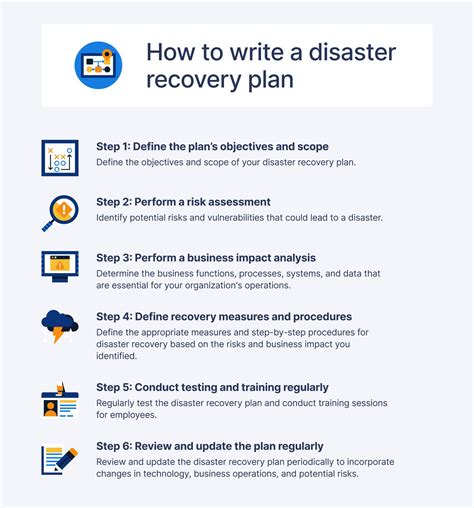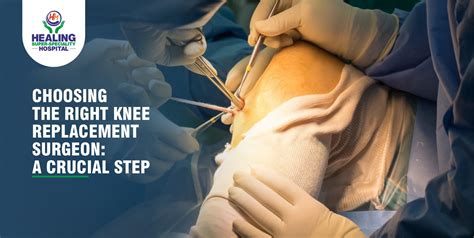Knee replacement surgery can be life-changing, offering relief from chronic pain and restoring mobility. But it’s also a significant procedure, and going in prepared makes all the difference. I remember feeling a mix of excitement and anxiety leading up to my own surgery. Honestly, I wish someone had laid out all the nitty-gritty details that went beyond the doctor's explanation. I learned a lot through the process, sometimes the hard way, and I'm sharing what I wish I’d known to help you navigate your journey with confidence.
1. The Pre-Surgery Fitness Focus I Ignored (and Regret)

Physical therapy before surgery isn't just a suggestion – it's vital! Building strength in the muscles surrounding your knee *before* the operation speeds up recovery significantly. Trust me, you don't want to be starting from scratch post-op.
- Prehab is Your Friend: Dedicate yourself to the prescribed exercises. The stronger you are going in, the easier recovery will be.
- Focus on Quads and Hamstrings: These muscle groups are key for knee stability.
- Don't Overdo It: Listen to your body and avoid pushing through severe pain. Small, consistent progress is better than a major setback.
- Nutrition Matters: Fuel your body with protein and nutrients to support muscle growth and repair.
- Mental Prep is Key: Visualize a successful recovery and set realistic goals.
- Ask Questions: Don't hesitate to ask your physical therapist about any concerns or modifications to the exercises.
- Start Sooner Rather Than Later: The more time you have to prepare, the better.
*Scenario:* I really slacked on my prehab. When I woke up from surgery, my leg felt like lead, and those initial exercises were excruciating. If I had just taken it more seriously beforehand, things would have been a lot smoother.
2. The Brutal Truth About Pain Management

While your doctor will prescribe pain medication, understanding pain management beyond pills is crucial. It's not just about masking the pain; it's about managing it effectively so you can participate in your recovery.
- Ice is Your Best Friend: Apply ice packs frequently to reduce swelling and pain. Keep a rotation in the freezer.
- Elevation is Key: Keep your leg elevated above your heart to minimize swelling.
- Medication Schedule: Stick to the prescribed pain medication schedule, even if you feel okay. This helps keep the pain under control.
- Explore Alternative Therapies: Consider acupuncture, massage therapy, or meditation to complement pain medication.
- Communicate Openly: Don't hesitate to tell your doctor if the pain is not adequately controlled.
- Understand Addiction Risks: Be aware of the potential for opioid addiction and discuss alternative pain management options with your doctor.
- Be Patient: Pain management is a process, and it may take time to find the right combination of strategies.
*Scenario:* I was hesitant to take pain meds initially, thinking I could tough it out. Big mistake! By the time the pain became unbearable, it was much harder to get it under control.
3. The Home Setup You’ll Kick Yourself for Not Doing Sooner

Preparing your home for your return is essential. This isn't just about convenience; it's about safety and minimizing strain on your recovering knee.
- Clear Pathways: Remove rugs and obstacles that could cause you to trip.
- Grab Bars are a Must: Install grab bars in the bathroom and shower.
- Raise Toilet Seat: This will make it easier to sit down and stand up.
- Recliner Chair: A recliner will provide comfortable support for your leg.
- Adaptive Equipment: Consider a walker, cane, and reacher to help with mobility.
- Stock Up on Supplies: Make sure you have plenty of food, drinks, and personal care items on hand.
- Prepare Meals in Advance: Cook and freeze meals so you don't have to worry about cooking while recovering.
*Scenario:* I thought I could just "rough it" for a few days. Boy, was I wrong! Navigating my house felt like an obstacle course, and I ended up relying heavily on my family for help.
4. The Mental and Emotional Toll I Underestimated

Knee replacement surgery is a physical challenge, but it's also an emotional one. Be prepared for the emotional ups and downs that come with recovery.
- Accept Help: Don't be afraid to ask for help from family and friends.
- Manage Expectations: Recovery takes time, and there will be good days and bad days.
- Stay Connected: Maintain social connections to combat feelings of isolation.
- Practice Self-Care: Engage in activities that bring you joy and relaxation.
- Journal Your Progress: Track your progress and celebrate your achievements.
- Seek Professional Support: Consider talking to a therapist or counselor if you are struggling with anxiety or depression.
- Be Kind to Yourself: Recovery is a marathon, not a sprint.
*Scenario:* I felt incredibly frustrated and down when I wasn’t progressing as quickly as I expected. Talking to a friend who had been through the same surgery helped me feel less alone.
5. The Importance of Adherence to Physical Therapy (Even When It Hurts)

Physical therapy is the cornerstone of a successful recovery. Skipping sessions or slacking on your exercises will only prolong your recovery and increase the risk of complications.
- Attend All Scheduled Appointments: Consistency is key.
- Do Your Homework: Perform the prescribed exercises at home as instructed.
- Communicate With Your Therapist: Let them know about any pain or discomfort you are experiencing.
- Set Realistic Goals: Focus on small, achievable milestones.
- Track Your Progress: Monitor your progress to stay motivated.
- Celebrate Your Successes: Acknowledge and celebrate your accomplishments.
- Be Patient: Recovery takes time, and there will be setbacks along the way.
*Scenario:* There were days when I just didn’t want to do my physical therapy. But I knew that if I skipped it, I would only be hurting myself in the long run. Pushing through those tough sessions was worth it.
6. The Unexpected Side Effects You Should Watch Out For

While knee replacement surgery is generally safe, it's important to be aware of potential side effects and complications.
- Infection: Be vigilant for signs of infection, such as fever, redness, or drainage.
- Blood Clots: Take precautions to prevent blood clots, such as wearing compression stockings and taking blood thinners.
- Nerve Damage: Numbness or tingling in the leg or foot can occur due to nerve damage.
- Stiffness: Stiffness is a common side effect, but it can be minimized with physical therapy.
- Loosening of the Implant: Over time, the implant may loosen, requiring revision surgery.
- Allergic Reaction: Be aware of potential allergic reactions to the implant materials.
- Pain: While the goal is pain relief, some pain may persist after surgery.
7. The Long-Term Maintenance You'll Need To Commit To

Knee replacement surgery isn't a one-and-done fix. You'll need to commit to long-term maintenance to protect your new knee and ensure its longevity.
- Maintain a Healthy Weight: Excess weight puts added stress on your knee.
- Avoid High-Impact Activities: Choose low-impact activities such as walking, swimming, or cycling.
- Strengthen Your Muscles: Continue to strengthen the muscles surrounding your knee.
- Protect Your Knee: Be mindful of your movements and avoid activities that could damage your knee.
- Regular Check-Ups: Schedule regular check-ups with your orthopedic surgeon.
- Listen To Your Body: Pay attention to any pain or discomfort and seek medical attention if necessary.
- Stay Active: Maintaining an active lifestyle will help keep your knee healthy and strong.
Tips for Personalizing Your Recovery Plan

Tailoring your recovery plan to your individual needs and circumstances is crucial for success. Consider your lifestyle, fitness level, and support system when creating your plan. Mention specific activities you hope to return to. I find incorporating short walks outdoors boosted my mental well-being during the recovery process, and this helped me stick with my PT exercises.
Common Pitfalls: What to AVOID During Your Knee Replacement Journey

Avoid comparing your recovery to others. Everyone heals at their own pace. Also, don't push yourself too hard too soon, as this can lead to setbacks. Don't be like me and try to climb the stairs the day after surgery – trust me, it's not worth it!
Conclusion

Knee replacement surgery is a significant decision, but with the right preparation and support, you can navigate your journey with confidence. Remember to focus on pre-surgery fitness, manage your pain effectively, prepare your home, address the emotional toll, adhere to physical therapy, be aware of potential side effects, and commit to long-term maintenance. Now go into your surgery feeling prepared and ready for a pain-free, active future!
